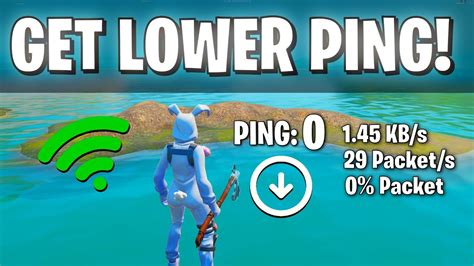How to Lower Ping: A Gamer's Guide to Faster Speeds
High ping is the bane of any online gamer's existence. That frustrating lag, the delayed responses, the inability to react quickly – it can completely ruin your gaming experience. But don't despair! Lowering your ping is achievable, and this guide will walk you through the steps to significantly improve your online game.
Understanding Ping: What Causes High Latency?
Before diving into solutions, let's understand what ping (latency) actually is. Ping measures the time it takes for a data packet to travel from your computer to the game server and back. High ping means this round trip is taking too long, resulting in lag. Several factors contribute to high ping:
Common Causes of High Ping:
- Internet Connection: This is the most frequent culprit. A slow or unstable internet connection, whether due to a poor internet plan, network congestion, or hardware issues, directly impacts ping.
- Distance to Server: The further your location is from the game server, the longer it takes for data to travel. Playing on servers across the globe will naturally result in higher ping than playing on local servers.
- Network Congestion: Multiple devices sharing your internet connection, or high network traffic in your area, can significantly increase ping.
- Router Issues: An outdated or malfunctioning router can bottleneck your connection, leading to higher ping.
- Background Processes: Programs running in the background, such as downloads or streaming services, can consume bandwidth and increase ping.
- ISP Issues: Problems with your Internet Service Provider (ISP) can also cause unpredictable ping spikes.
Effective Ways to Lower Your Ping
Now that we understand the causes, let's explore effective strategies to reduce your ping:
1. Optimize Your Internet Connection:
- Upgrade your internet plan: Consider a faster internet plan with lower latency.
- Connect via Ethernet: Wired connections (Ethernet) generally offer more stable and faster speeds than Wi-Fi.
- Check for Interference: Move your router to a central location, away from other electronic devices that might interfere with the signal.
- Restart your modem and router: A simple reboot can often resolve temporary connectivity issues.
2. Choose the Right Server:
- Select a closer server: Opt for game servers located geographically closer to you for lower ping. Most online games allow you to select your server region.
3. Manage Network Traffic:
- Close unnecessary programs: Terminate any applications you're not actively using.
- Pause downloads and streaming: These activities consume significant bandwidth.
- Limit device usage: Reduce the number of devices connected to your network during gameplay.
- Prioritize gaming traffic (QoS): Some routers allow you to prioritize network traffic for specific applications, such as your game. Check your router's settings to see if this is an option.
4. Upgrade Your Hardware (If Necessary):
- Consider a new router: An older router might not be capable of handling the demands of modern online gaming. A newer router with better performance might help.
- Upgrade your network adapter: A faster network card can improve your connection speed.
5. Contact Your ISP:
- Report any connectivity issues: If you suspect a problem with your ISP's service, contact them for assistance.
6. Utilize Ping Reducing Software (Use with caution):
Some third-party software claims to reduce ping. Use these cautiously, as some might be ineffective or even harmful. Thoroughly research any software before installation.
Monitoring Your Ping
Regularly monitor your ping using in-game tools or third-party applications. This helps you track your progress and identify potential issues.
By following these steps, you can significantly reduce your ping and enjoy a smoother, more responsive online gaming experience. Remember that a combination of these strategies often yields the best results. Good luck, and happy gaming!
